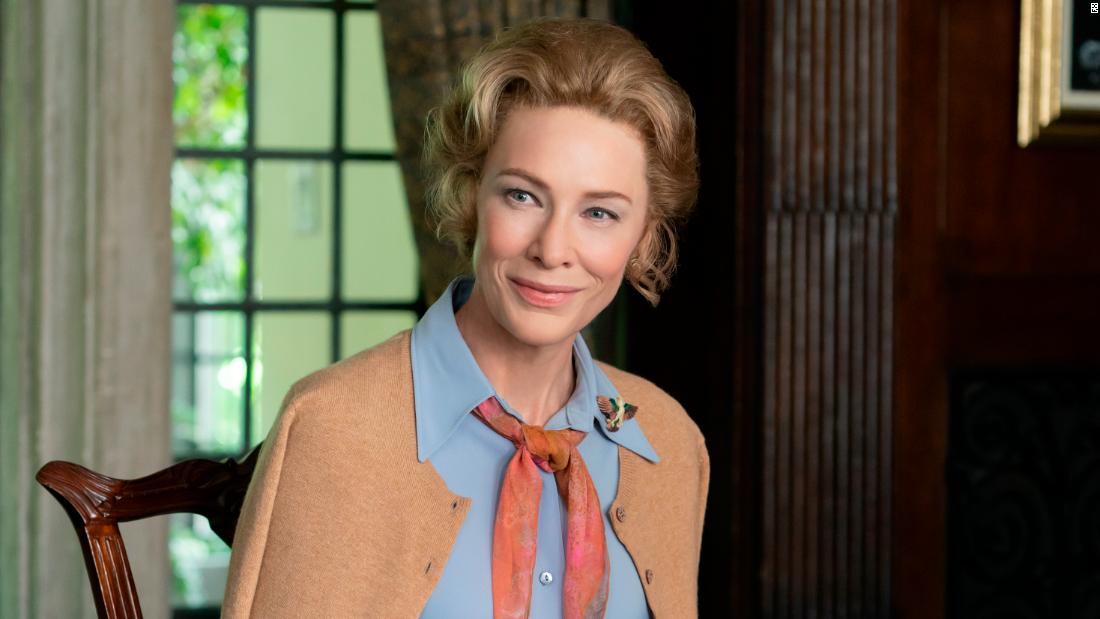[ad_1]
There are several other ways that “Mrs. America,” set decades ago, feels even like a harbinger of doom for women’s rights even today because of the many parallels between these two historical moments.
It feels like, in some crucially important ways, the fight for women’s equality is in an even worse position than it was in the 1970s. This is largely because of the mainstreaming of radical right-wing ideologies within the Republican Party (those embodied then in Schlafly and now in Trump, and their respective acolytes), and the near impossibility of bipartisan compromise since Barack Obama was elected in 2008.
I can’t imagine high-profile GOP women uniting with liberal feminists to achieve gender equality today. During the fight over Brett Kavanaugh’s confirmation to the Supreme Court, when Christine Blasey Ford accused him of attempted rape (an accusation he denied), Republican Senator Susan Collins had the chance to do just this, and she chose to side with her party. Of course, those confirmation hearings raised feelings of dread for so many women, as it became painfully clear again that women’s suffering matters less than a powerful white man’s career.
Another way this episode illustrates the shift in ideology within the Republican Party is Ruckelshaus’ characterization of Ronald Reagan— who challenged Gerald Ford for the 1976 Republican nomination— as a right-wing radical; she assumed the GOP leadership would never go for his anti-choice platform.
Ruckelshaus, unlike Schlafly, is still alive, and I can’t help but wonder what she thinks about our current state of affairs, given that Reagan has since become the gold standard for mainstream GOP politics. Schlafly was an important force in pushing the GOP to the right, and almost 50 years later, we’re seeing the culmination of her efforts and their disastrous effects on gender equality.
The dramatized conversation between Ruckelshaus and Schlafly about sexual harassment is paralleled by a debate between congresswomen (and feminist allies) Shirley Chisholm and Bella Abzug in the same episode. The two Democrats argue over what to do about congressmen who prey on their secretaries (some of whom have come to Chisholm for support). Abzug maintains that they can’t afford to call out Democratic harassers (whose votes are needed on women’s issues), while Chisholm points out the hypocrisy in ignoring sexual harassment when it’s politically expedient to do so.
Visible in today’s debate are those who I’ll call the Chisholm feminists, those who support victims of sexual assault no matter who the accused are and maintain that women’s pain and suffering aren’t an acceptable trade-off for getting Biden elected. We can also see the Abzug pragmatists, who believe Biden is a necessary evil for getting a disastrous president out of office. This second group also asserts out that Trump, too, has been accused of sexual assault, so why should only Democrats be expected to do the right thing?
The 1970s fault lines that Abzug and Chisholm represent among feminists and other leftists are still visible, if not more pronounced, today, as Biden and Trump (who has also denied the allegations against him) are set to square off in November 2020. I believe the Democrats still have time and should replace Biden as their nominee for November’s election, especially because just a few months ago, there were several women who seemed to have strong prospects for the nomination. Kirsten Gillibrand, Kamala Harris, Amy Klobuchar, and Elizabeth Warren.
The fact that Warren wasn’t able to get more traction among Democratic voters despite her many detailed plans and energetic, witty, compassionate and fierce stage presence, was an incredibly bitter pill for many to swallow. Despite the fact that many people swore Warren would have gotten their vote had she been running in 2016 rather than Hillary Clinton, she didn’t come close to the Democratic nomination. The only reasonable conclusion is that a large swath of this country still doesn’t consider women equally fit as men to serve as president.
But, similar to when the Women’s Caucus largely abandoned Chisholm for the more politically viable George McGovern (dramatized in episode three of “Mrs. America”), it still feels awful to see a woman throwing another woman under the bus to support a man. It raises the question: are female presidential candidates any better off now than when Shirley Chisholm ran for president in 1972?
So, just imagine, if two white women, Clinton and Warren, haven’t been able to shatter the ultimate glass ceiling, how long might it be before we see a black woman elected president?
It’s demoralizing to realize how many things remain relatively unchanged after 50 years — particularly for those of us with young daughters who may not have the same reproductive choices I have enjoyed. I can’t honestly tell my daughter that her chances of being elected president are the same as they are for my son. I may have believed it was possible five years ago, but now I don’t know that I’ll ever see a female American president.
“Mrs. America” is a well-made, brilliantly acted period show. It’s also a stark reminder of the shaky ground on which the victories of the women’s liberation movement currently stand.
[ad_2]
Source link





